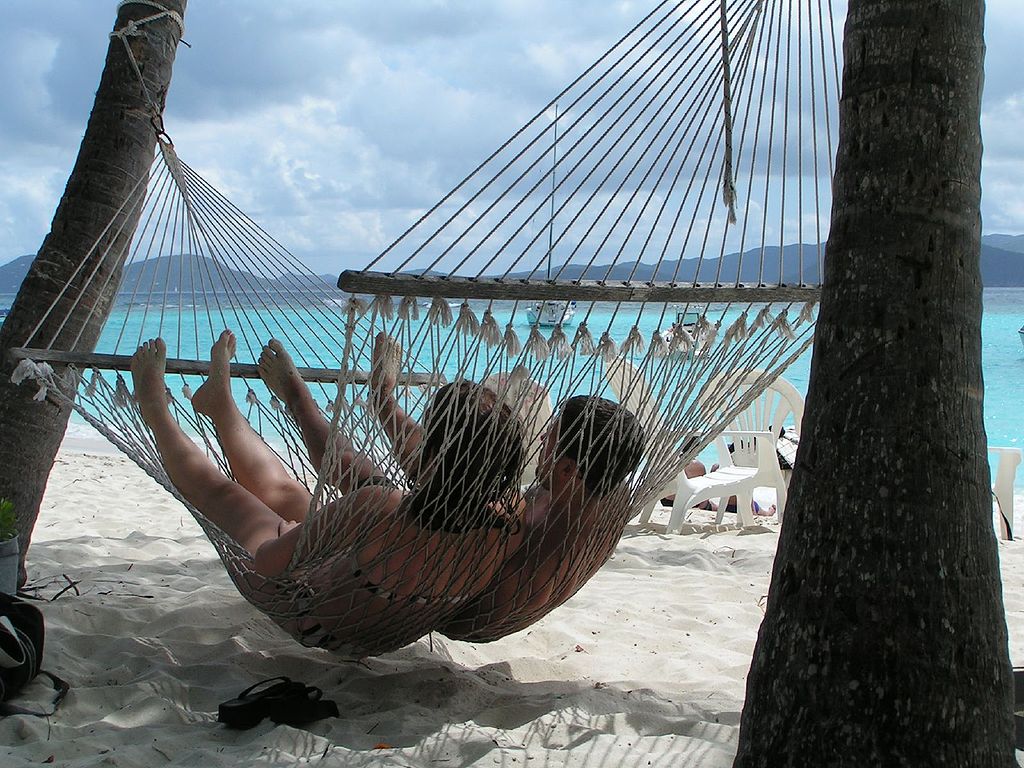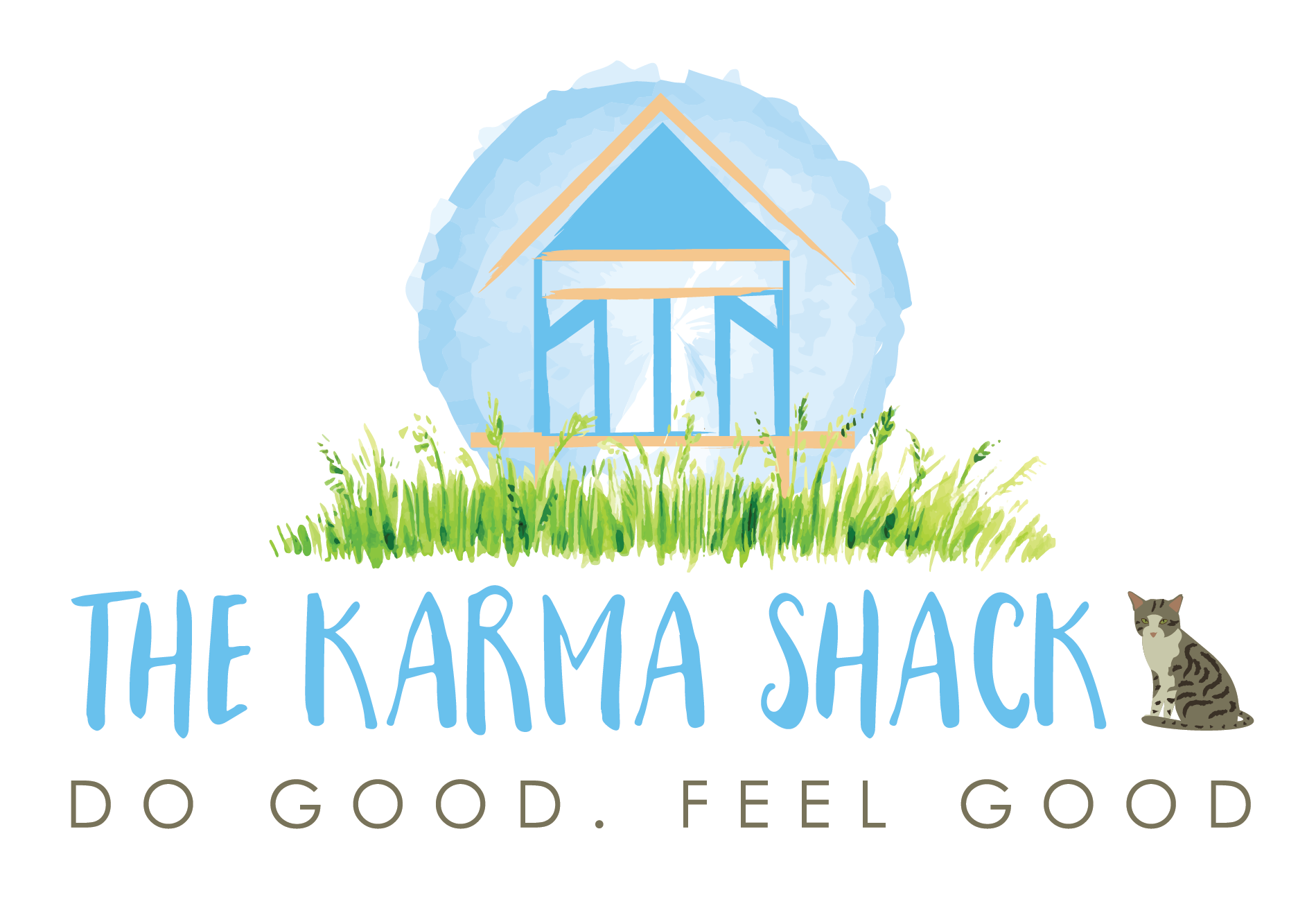
Think in full colour.
Spring greens and endless hues of blues. Squinting against the intense sunlight, you feel the moist salt on your skin, the breeze playing with your hair, the trickles of sweat running down your body from every fold of skin because that sun is hot.
Your nose picks up the sweetness of flowers attracting their love bugs; your ears are soothed by sounds of lapping waves. A hammock strung in the shade of the palm trees is inviting you for a siesta in paradise.
You’re living the dream: a stress-free life on a tiny tropical island.
Actually, I am living your dream. The picture I just painted in your mind’s eye really exists. It’s not a dream though.
I live in that dream picture—it’s just not the whole picture.
There’s much more to living on a tiny tropical island, and it isn’t all fun.
By force of paradise, I have learned many valuable lessons that I wish were taught in school to every child in the world. They involve some mindful life skills that can help us reclaim our responsibility to improve the health of our planet and of ourselves.
I’ll share my top three paradise island lessons with you:
1. Be resourceful.
Tropical paradise islands are—by default—remote, otherwise they wouldn’t stay paradisiacal for long.
Remote as in: hard to get to—for people and even more so for goods.
This means that we have only the basics here. When something breaks, we cannot just go and get a new one. No such thing when you’re living the dream in paradise. When something breaks, we have to fix it ourselves—one way or another. We get resourceful, look for out-of-the-box solutions, making do with whatever is available to get the item to work a bit longer—until we can finally get a replacement. (And, sometimes, we even learn to live without it and be happy anyway!) From sheer lack of the usual options, our creativity buds. By making things last longer, we are depleting less resources, which is great for our environment!
In (y)our modern fast-paced society, people hardly think any more of the option to fix something when it’s broken. Nowadays, everything is seen as disposable and easily replaced. But our planet is not disposable. The health of our planet would benefit tremendously if more people would tap into their own creativity and become more resourceful in the way they fix or reuse their possessions. So, take a look at your stuff, get creative, and see what you could fix and reuse. It’s actually fun, once you get started.
2. Take responsibility for our trash.
Remote communities all over the world usually are last on the list for government services—such as trash collection.
Here on the island, we’re on our own when it comes to trash. Humour me, and try to imagine that you have to take responsibility for every piece of trash that you generate. How would you manage?
Here’s my personal list of habits to minimise and manage my trash, but we could all do this—even if the government takes care of our trash for us. Our planet would be grateful if we’d all:
>> Change our diet: no more canned foods, no drinks in plastic bottles, very few processed foods, dry goods only bought in bulk.
>> Always carry light-weight shopping bags and refuse plastic bags.
>> Refuse straws, to-go cups, and bring our own Tupperware for take out.
>> Compost as much as possible, including paper and cardboard. (Find a community garden in your neighbourhood if you don’t have a garden!)
>> Reuse, repair, and recycle whatever we can.
If I wouldn’t do all this, my “dream life” would soon become a nightmare in which I would be buried under my own pile of trash. On a global level, we humans are covering the planet with our trash and we can all help to prevent that. I don’t like nightmares, do you?
3. Take responsibility for our own health.
Recently, I spoke with our one doctor here, and he said that our health centre does not allow him to be a professional doctor—for lack of instruments, machinery, and medicine. Now I really hope I’ll never get sick. Knowing that the care I can receive here is so limited, I would rather try and get better on my own.
Natural remedies and treatments, either learned from locals or found online, are my first choice. I have come to love acupressure as a wonderful self-healing technique for all common ailments. All you need are your fingers.
More than anything, I have reconnected with my body. I have learned to listen better to its needs, to take better care of it, and to trust its natural healing abilities. Now I get sick less and less.
In our modern societies we have become so dependent on science, doctors, and pharmaceuticals to make us better, that we have lost both our innate ability to heal and our responsibility to try and stay healthy in the first place. When we stop relying blindly on that safety net (whether by force or by choice), we can learn that our bodies are far more capable of healing on their own than the modern medical and pharmaceutical world wants us to know.
Most citizens of the First World have come to rely on services such as online shopping and two-day delivery, repair services, centralised garbage pick-up, and reliable health care. That reliance has created a strong dependence. Dependence means a loss of power, a loss of our individual ability to take responsibility—whether that is to take care of our trash, our health, or just our daily possessions.
It could be of benefit to us and the planet if we all started to reclaim that individual power and take responsibility again for these things. By being more mindful of resources, we can rediscover our creativity and fix things and, thus, lengthen the lifetime of our possessions. By being more mindful of everything we buy, in terms of the trash that it will create, we can reclaim our responsibility for the environment. And by reconnecting with our own bodies’ natural healing abilities, we can reclaim responsibility of our health and become less dependent on expensive medical care and Big Pharma.
You may never live the dream, but I invite you to expand your view and take these lessons from paradise to create a better life and a healthier planet wherever you are.
This article was first published in Elephant Journal.
